| Senate Rules Committee Holds Hearing on
Campaign Finance ...4 of 4 > |
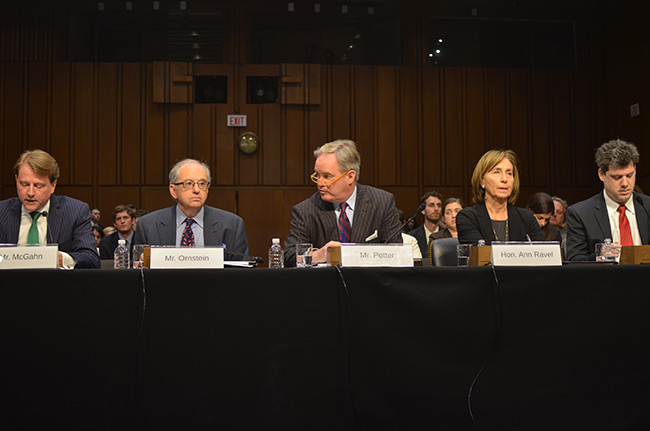 |
| April 30, 2014 - The second panel consisted of Donald F. McGahn, partner at Patton Boggs LLP and a former commissioner of the FEC, Norman Ornstein of the American Enterprise Institute; Trevor Potter, president and general counsel of the Campaign Legal Center and a former commissioner of the FEC; Ann M. Ravel, vice chair of the FEC, testifying in her role as former chair of the California Political Practices Commission, and Neil P. Reiff, a founding member of Sandler, Reiff, Young & Lamb, P.C. who represents over 40 state Democratic parties. |
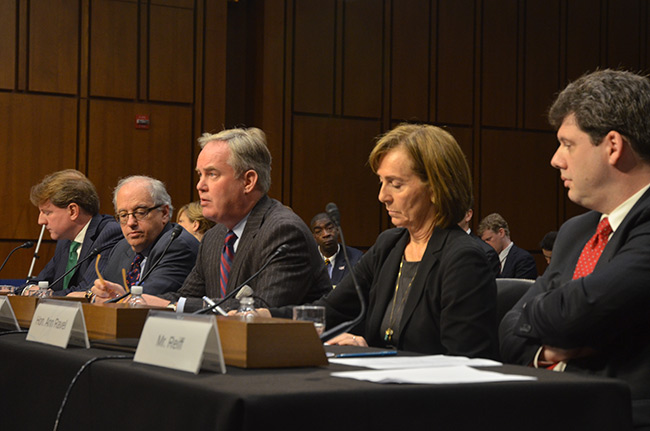 |
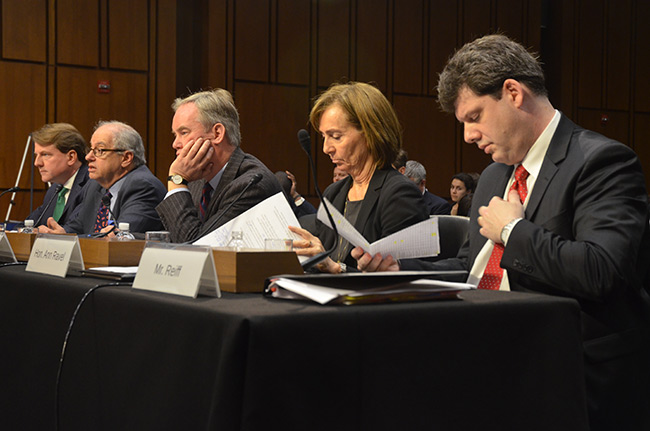 |
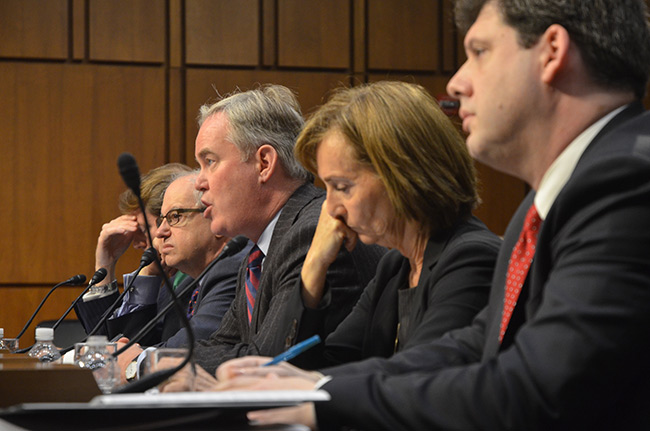 |
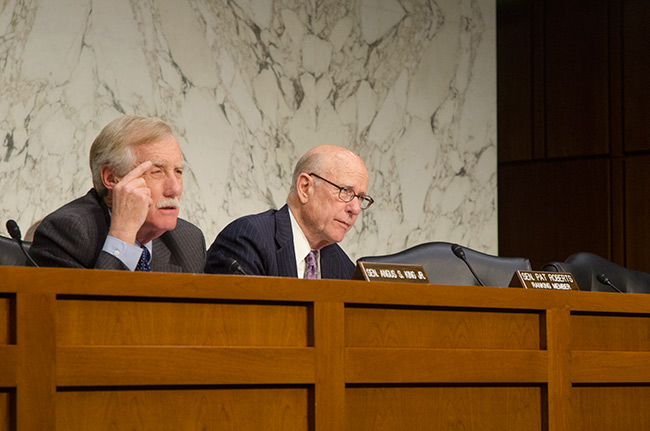 |
| "Nondisclosed money is a danger
to the Republic," stated Sen. King; he said the "dark money" is
"undermining trust and confidence in our government." Sen.
Roberts questioned the FEC's impartiality, drawing attention to a news
report yesterday about an FEC lawyer who was forced to resign after it
was discovered he had politicked for President Obama's re-election
campaign from FEC offices, in violation of the Hatch Act. |
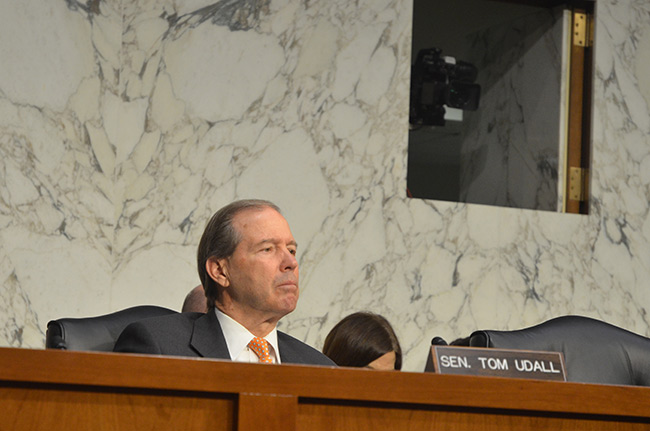 |
| Sen. Tom Udall (D-NM), author of
the proposed constitutional amendment on campaign finance reform. |
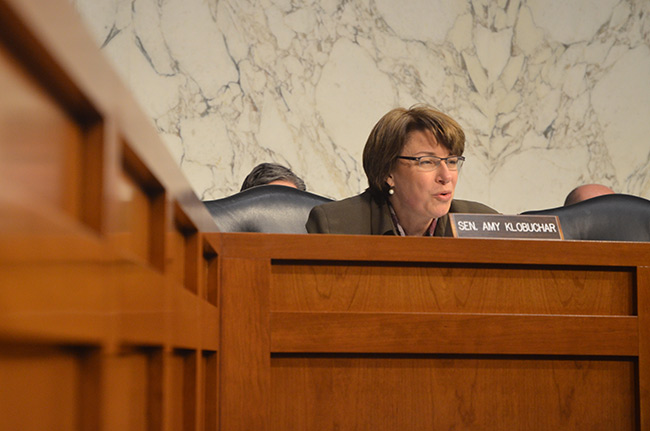 |
| Sen. Amy Klobuchar (D-MN) said
the open process in Minnesota leads to high turnout. |
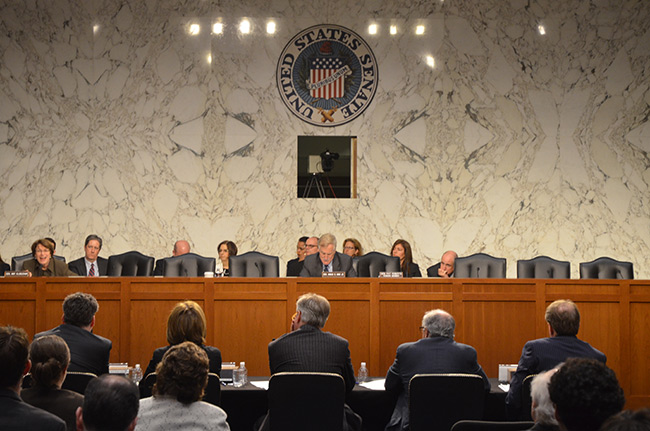 |
| Campaign finance is one of those intractable
issues like immigration reform where the two parties have polar
opposite views on what the problem is and how to address it and the
prospect of any legislation passing in the near future appears
remote. One side argues "money is not speech" and there should be
limitations and restrictions, while the other maintains "money is
speech" and any limitations violate First Amendment rights. Senate Committee on Rules and Administration (includes testimony of the witnesses) In addition to the two panels, a number of groups submitted written testimony including: Center for Competitive Politics Quotable: "Despite heavy media focus in 2012 on 'dark money,' 'secret money,' and 'undisclosed spending,' in fact, the United States currently has more political disclosure than any time in its history. Candidates, political parties, PACs, and Super PACs disclose all of their donors beyond the most de minimis amounts. This disclosure includes the name of the group, individual, or other entity that is contributing, the date on which it occurred, and the amount given. Indeed, these entities also report all of their expenditures." Center for Responsive Politics Quotable: "...in the absence of clear rules, nondisclosing groups and their lawyers are able to circumvent disclosure requirements with relative ease and little expectation of legal repercussions." Public Campaign Quotable: "What the Roberts Court has left us with is a campaign funding system that will make it harder for the voices of everyday Americans to compete with the megaphones of mega donors. McCutcheon was about more than just legal principle and precedent, it was about power. In striking down the aggregate limits, the court sided with the money over the many..." NAACP Washington Bureau Quotable: "..the U.S. Supreme Court's decision in McCutcheon v. FEC will lead to the domination of our political system and our government by the wealthiest among us, who can now increase their ability to influence politicians, politics, which issues are debatd, and how those issues are resolved." corrected May 4, 2014 |
| < previous | back > |

